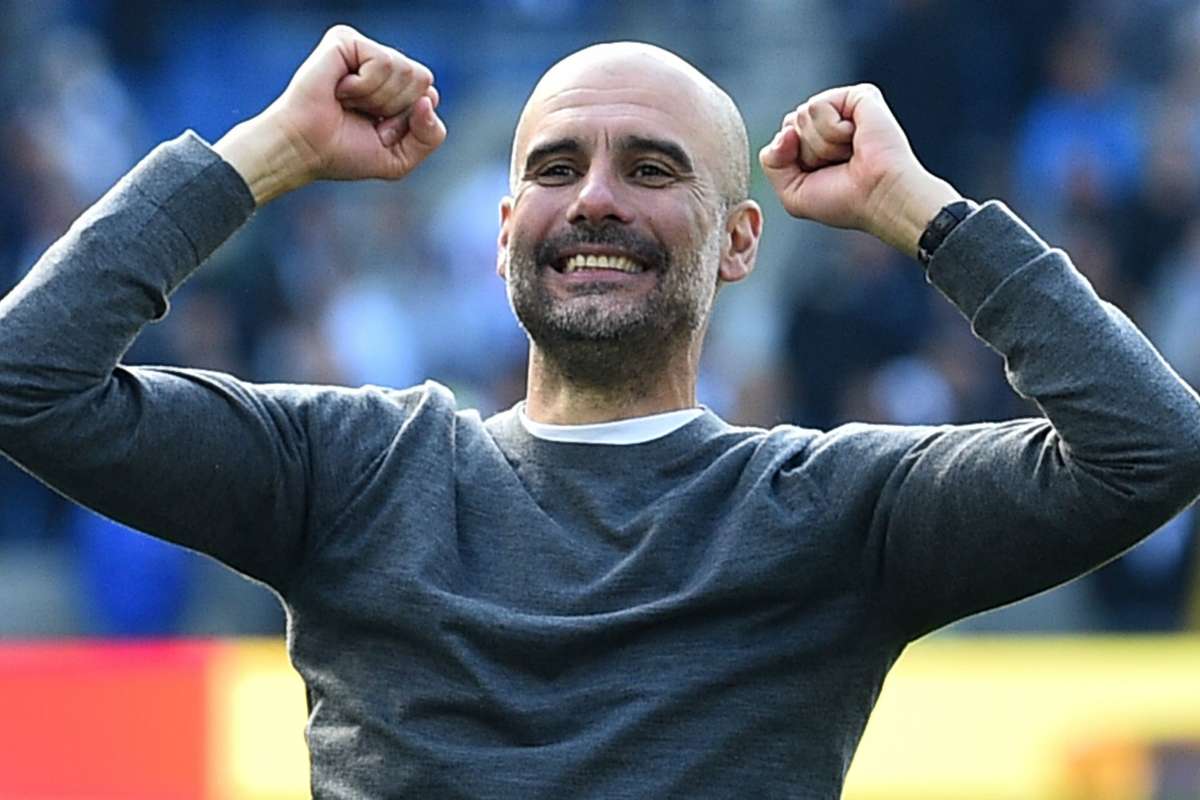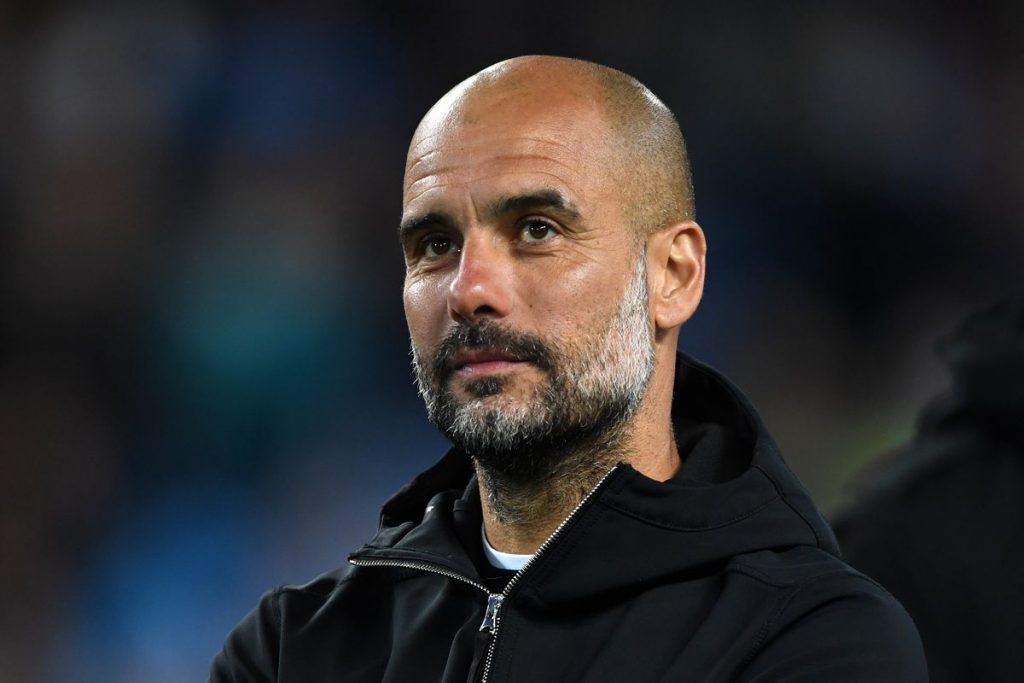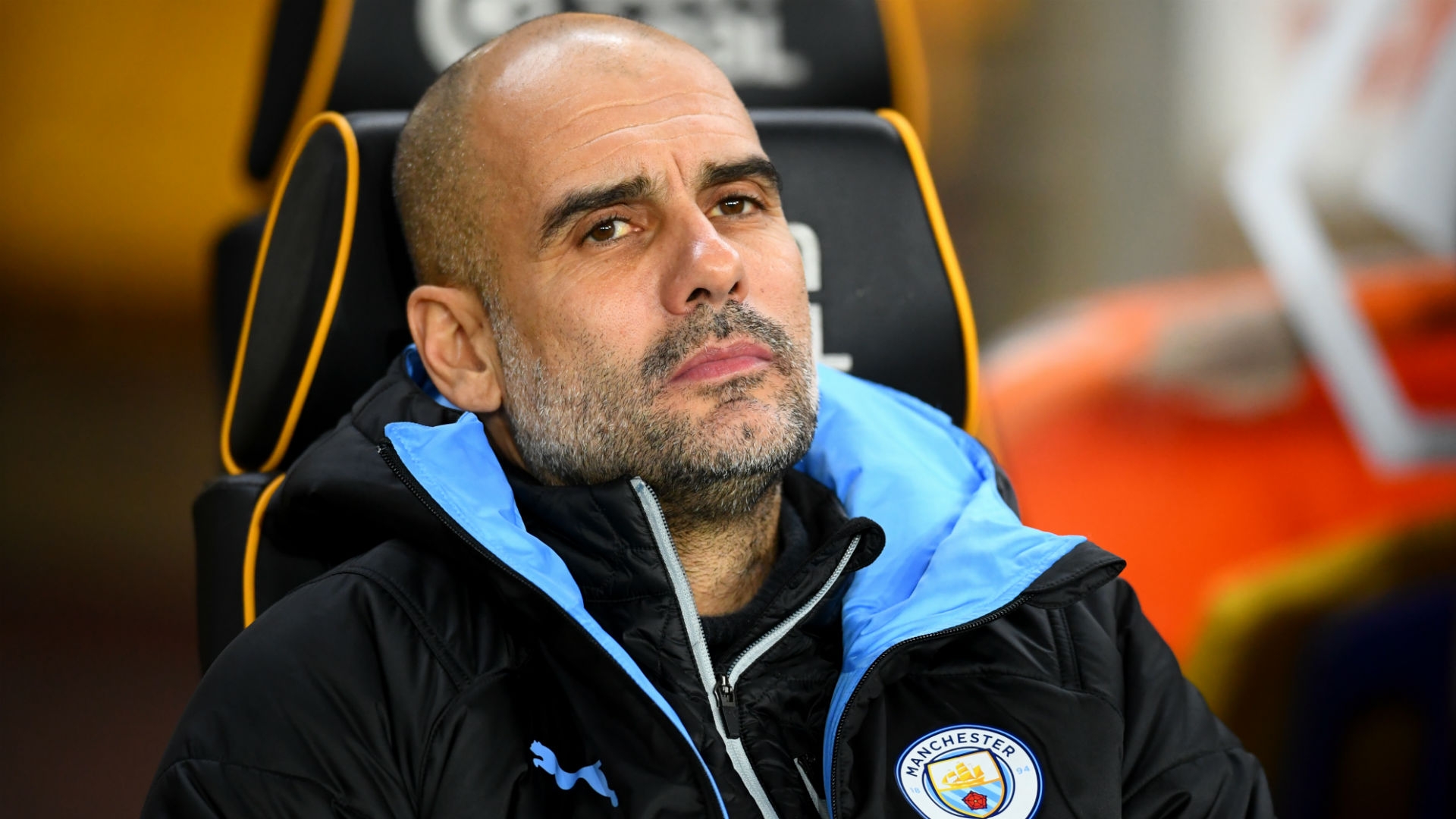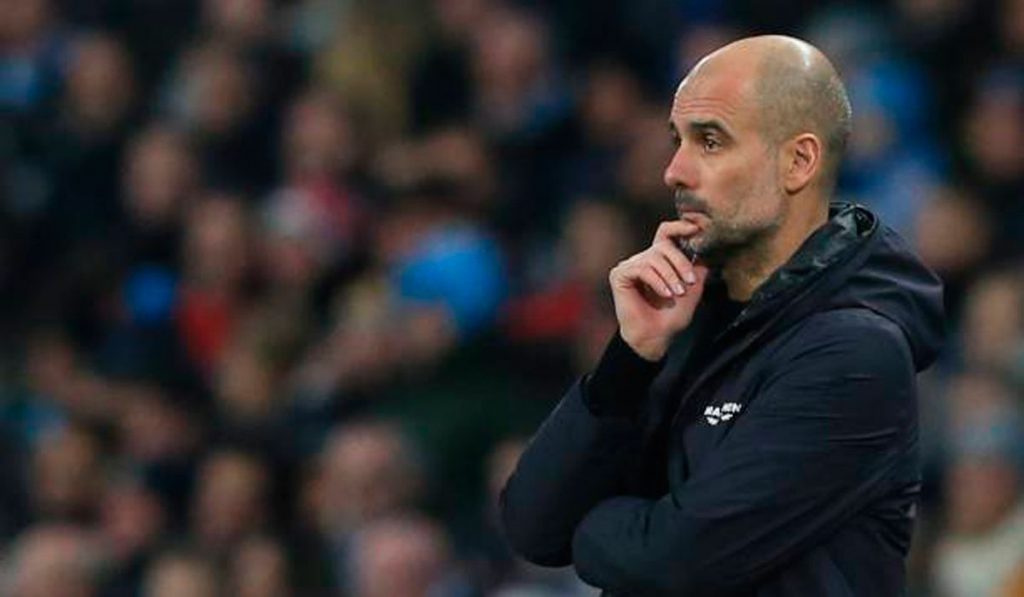Tag Archives: Pepguardiola
Flick won 15 of the first 18 games with Bayern in the Bundesliga, repeating Guardiola’s record

Bayern defeated Borussia Dortmund (1-0) in the 28th round of the Bundesliga. For the club from Munich, this victory was the 15th in 18 League matches since the team was led by Hans-Dieter flick.
The only Bayern coach who has managed this before is PEP Guardiola, who now works at Manchester city.
Arjen Robben: “For me, Guardiola is the best coach in the world. We were on the same wavelength»
Former Bayern midfielder Arjen Robben has spoken highly of Manchester city Manager PEP Guardiola.

“I am a big fan of Guardiola. I love attacking football, and PEP is a master at it. He is focused on attacking and full control of the ball. At every training session, we worked with the ball.
Of course, I liked it. We were on the same page. It’s a shame that we never won the Champions League with him. But injuries, disqualifications or bad decisions by the judges led to the fact that each time everything ended at the semi-final stage.
Thanks to him, I became a better player. For me, PEP is the best coach in the world. In three years with him in Munich, I learned a lot, ” Robben said.
Robben played under Guardiola at Bayern from 2013 to 2016.
Willy Caballero: “Working with Guardiola is like studying at a University. He’s a great teacher»
Chelsea goalkeeper Willy Caballero shared his memories of working with coach PEP Guardiola at Manchester city in the 2016-17 season.
“Working with Guardiola is like studying at a University. I spent one year with him at Manchester city, learning something new every day.
He’s always explaining things to you, whether it’s on the field, watching videos, or at any other time.
He has no problem teaching and explaining everything to a 34-year-old like me, like I’m 18. He is a great teacher, ” Caballero quotes Goal.com with a link to TNT Sports.
Utkin about the best coaches in the world: “I don’t think Ferguson is great, and Guardiola’s football is not romantic».

Journalist Vasily Utkin shared his thoughts about the best coaches in the history of football.
“Who do we think is a great coach? I am afraid that it is impossible for everyone to agree on this issue. Look at the top ten FourFourTwo. It has three British coaches. Well, isn’t it related to the fact that the magazine is English? And I don’t mean patriotism at all, I mean that different countries – especially countries with a great, large, long – standing football culture-have developed their own idea of the greatness of coaches.
I don’t think sir Alex Ferguson is a great coach at all. I think his coach is outstanding in every way, but you already know that I am very, very demanding of the word “great”.

Why don’t I think sir Alex is a great coach? Explain to you. Perhaps the first thing that will occur to you is that sir Alex only worked for one team all the time. First of all, this is not true. He also worked at Aberdeen – and the Scottish Aberdeen never showed what it did under sir Alex again. But this is not the point, in principle. This criterion that you need to work in different places, it is in principle very vymorochny. Don’t you understand that sir Alex Ferguson has made a lot of different teams at the same club all the time.
What is important is that different countries have different stereotypes about who a coach is. And in England, of course, it is the coach-Manager, the coach-father. Note that this applies to all coaches – Ferguson, Shankly, and Busby. This English criterion does not distinguish another very important quality of the coach.
In my opinion, a truly great coach can’t exist outside of the greatness of the concept. The coach must have a specific view of the football game. It can change, too, but a great coach, in my understanding, must bring some new idea to the world. Michels meets this requirement, sir Alex Ferguson does not.
This does not mean that I am necessarily right or that you are necessarily right about, say, who to choose from these two symbolic figures. This simply means that there may be different views on the coach’s figure. In this sense, I want to congratulate you: we live in the era of a coach who is certainly great and who will remain in history. This Is PEP Guardiola.
It certainly changes football. We often talk about romantic and pragmatic football, but this is a big exaggeration. Guardiola’s football is not at all romantic, it is wildly pragmatic. He watches his opponent die of thirst. He does not beat it with a sword and shield, but takes the ball – and the opponent can do nothing at all. It is a slow, humiliating death from the inability to resist. What is the romance here?
If I were guided by purely British criteria, I would add Jock Stein, who died in the dressing room after the Scotland team made it to the 1986 world Cup under his leadership. By the way, thanks to this unfortunate event, we saw sir Alex Ferguson at the head of the national team, even for one tournament.
Jock Stein is great with Celtic winning the Champions Cup. This is one of the last victories of the old era, and Stein also expressed himself in the sense that he was successful with a team whose players all grew up in or around Glasgow. This principle that it is cool to achieve success with your students, with the locals, it remains very important for many people to this day.
I honestly wouldn’t put bill Shankly in the top ten. Of the coaches already named, it is the easiest to do without him. Busby is a unique example, which is impossible not to appreciate. It’s not quite coaching example – his team lost, but he has made new again and was able to make it the best in the world, brought to a level which has not finished first, but rather personal, but Busby here.
I don’t want to be very Intrusive with this hassle, that the coach must have his own new concept. Yes, this is very cool, this is the most important thing, without it it is impossible to top such a list. But coaches are different. There is a name today half-forgotten, but this is the type of coach who can work almost anywhere, makes a team from improvised means. This is Ernst Happel, ninth on the list. He was the first ever to win the Champions Cup with two different teams.
Lobanovsky’s place is beyond any doubt. He is probably the head coach from the Eastern bloc in history. On the one hand, he absorbed new ideas – he was a student of Maslov, he was total, and partly totalitarian in terms of implementing a certain concept of the game. But at the same time, he was always very critical of himself. When he came to Dynamo Kiev, he wanted his colleague Basilevich to take the position of head coach with him – that’s how much Lobanovsky valued other people’s opinions.
At the same time, he was a man of his time, and his work and success are inseparable from the realities of the Soviet Union. Comparing Lobanovsky with Beskov (this is a figure of the Happel type), it was often said that Beskov, in order to assemble a strong team, would only need to see 30 people, and Lobanovsky would need 300. It would be simply impossible to do this now – invite anyone. And Lobanovsky had such opportunities in the Soviet Union. This does not belittle his coaching personality, but only shows that he became the first and irrefutable – and now forever – in the society that gave these opportunities. But he is an absolutely great coach.
Ariggo Sacchi is definitely in his place here. I will not dispute whether it is the sixth, third or eighth – it is simply irrelevant. Sacchi invented the pressure in the modern sense of the word in Milan and thus turned the minds of a large number of people in the football world. He is a great coach and has come up with a way of playing that is suitable for a poor team without stars.
The very principle of Sacchi-creating maximum density, maximum resistance to the opponent in a limited area of the field-is applicable both in the team claiming the first place, and in the team claiming a place in the top ten. This idea was the crowning achievement of that era – before the 1994 world Cup-when they talked about the death of football from a goalless drought, when defense was put above attack.






